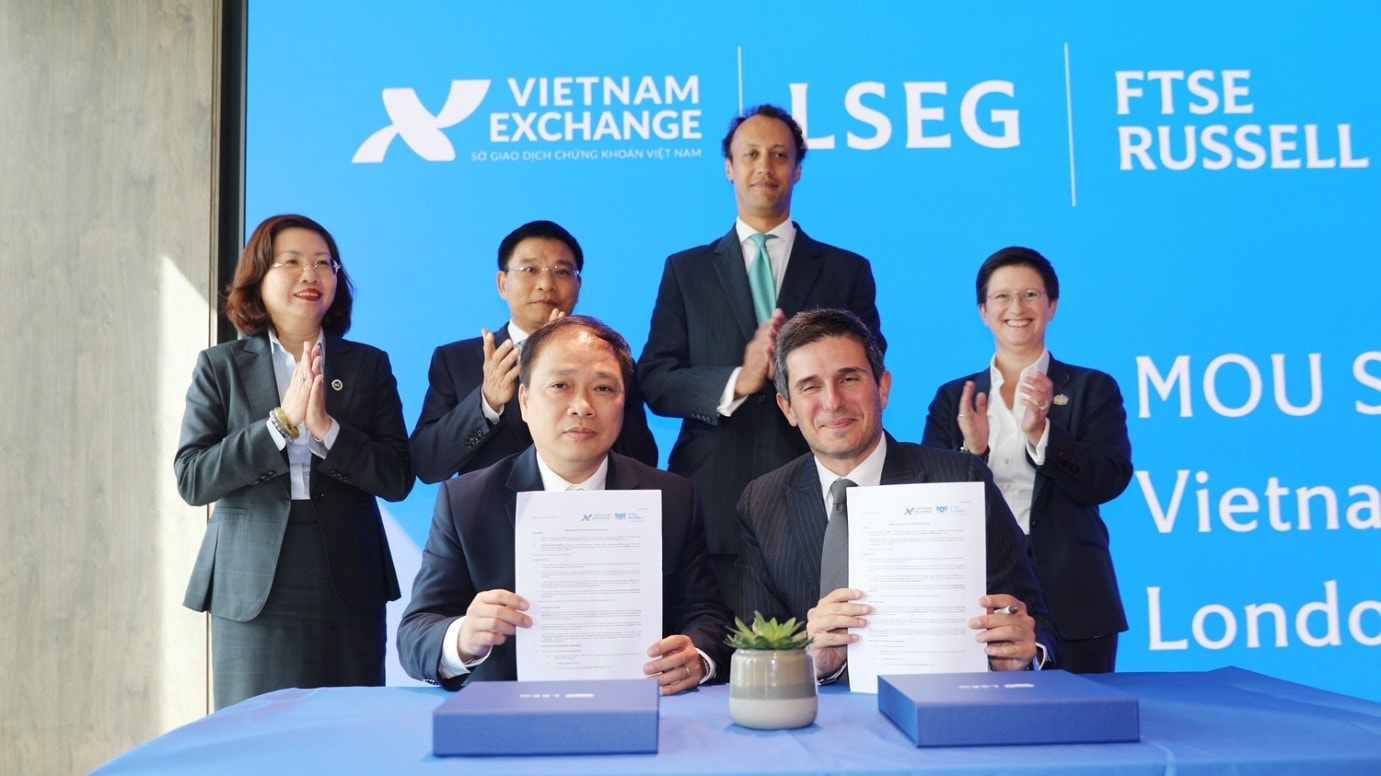Vietnam is on the doorstep of a landmark reclassification that could reshape its capital markets and attract billions of dollars in foreign investment. Last week in London, Minister of Finance Nguyen Van Thang reaffirmed the government’s commitment to moving from frontier to secondary emerging market status. During his visit to the UK and Italy, he met with leaders of the London Stock Exchange (LSE) and FTSE Russell, calling for support on index refinement and post-trade infrastructure. Vietnam also signed an agreement with FTSE to further strengthen market development.
This effort builds on a series of decisive reforms issued recently by the government including Decree 245, amending the Securities Law to remove foreign ownership restrictions that previously allowed companies to set caps below the legal maximum. The move expands “foreign room” and aligns with international commitments. At the same time, Circular 68 removed the requirement for foreign institutional investors to pre-deposit sufficient funds when placing buy orders. These reforms collectively address key barriers identified by global index providers.
The momentum was reinforced on 12 September, when the Prime Minister signed Decision 2014/QĐ-TTg, approving the “Stock Market Upgrading Scheme.” The roadmap sets clear objectives: in the short term, to satisfy all criteria for FTSE Russell’s secondary emerging market classification within 2025; and in the longer term, to aim for MSCI Emerging Market and higher FTSE tiers by 2030.
Minister Thang has confirmed that Vietnam has met all nine mandatory criteria set by FTSE Russell, including improvements in foreign ownership, pre-trade funding, and settlement practices. Investors are now looking forward to 7 October 2025, when FTSE Russell will announce the results of its annual country classification review.
A positive decision could mark Vietnam’s official upgrade, with results expected after U.S. market close — early 8 October Hanoi time.
Market analysts see significant opportunities if Vietnam secures reclassification. Estimates suggest that passive inflows from FTSE-tracking exchange-traded funds (ETFs) alone could range from USD 1.0–1.5 billion, with active institutional funds likely to follow. The sectors expected to benefit most include banking, securities, financial services, real estate, and other highly liquid large-cap stocks. At the same time, a global shift toward monetary easing, with the U.S. Federal Reserve signaling rate cuts, may provide additional support by lowering capital costs and easing currency pressures.
The upgrade, however, is not without challenges. Experts caution that sustaining investor confidence requires not just regulatory changes on paper, but consistent implementation in practice. This includes improvements in transparency, financial reporting standards, robust settlement mechanisms and investor protection. Additionally, short-term volatility may occure as markets adjust to heightened expectations and shifting foreign capital flows.
Still, the outlook is highly optimistic. If confirmed in October, Vietnam’s reclassification will not only elevate its profile in global capital markets but also unlock new avenues for companies to raise funds, expand, and compete on the international stage. For investors, this represents the opportunity to engage with one of Asia’s most dynamic and promising emerging markets.



